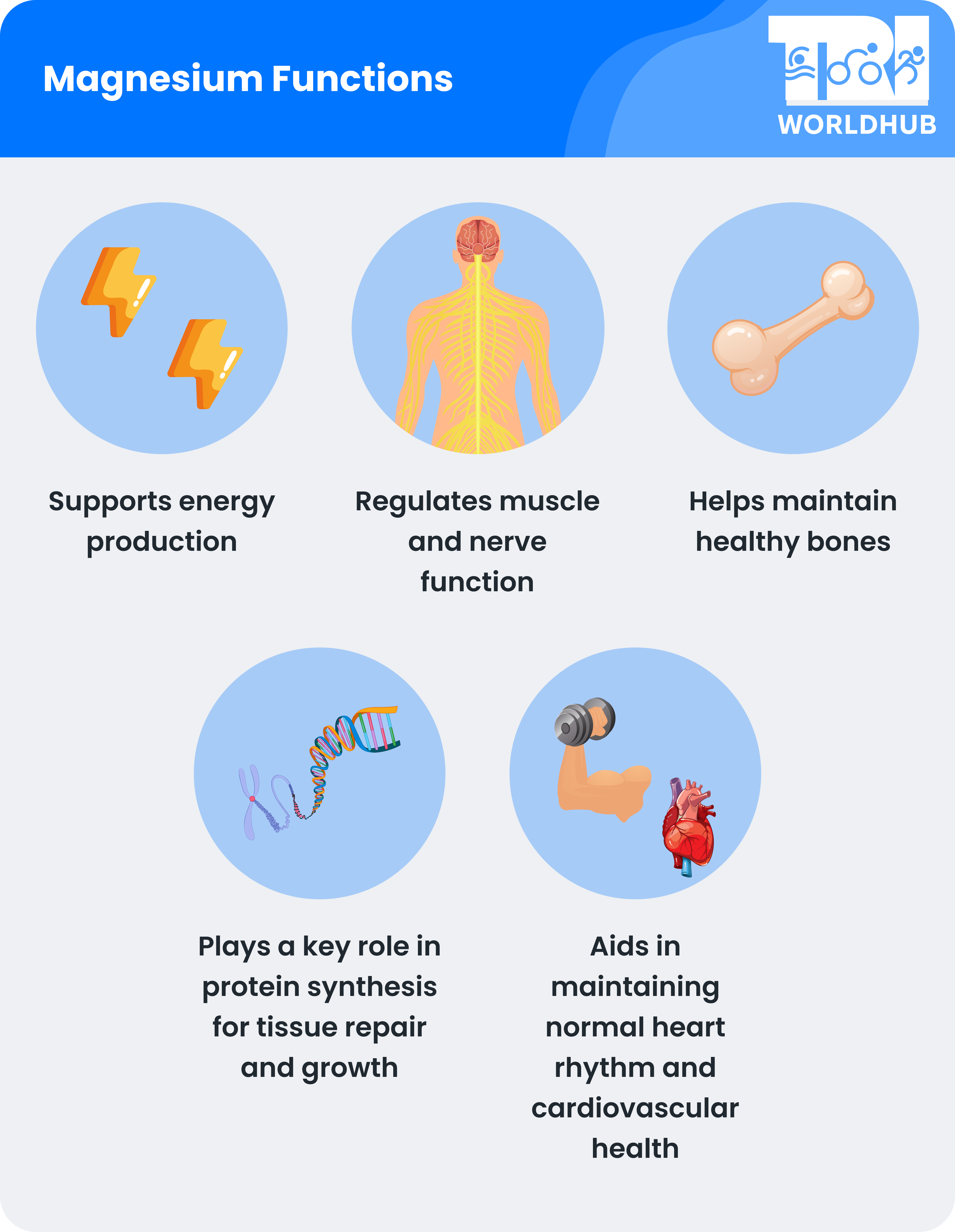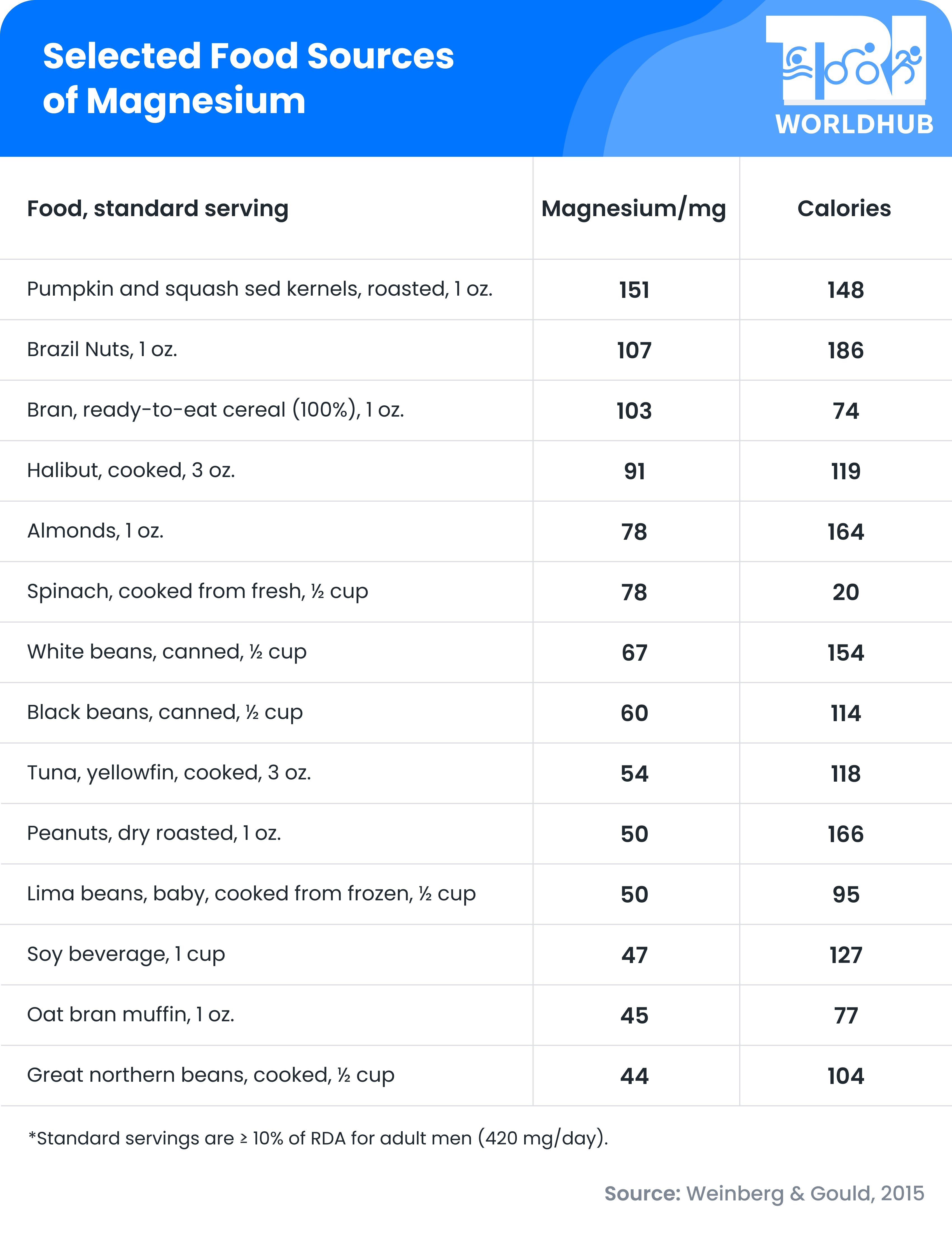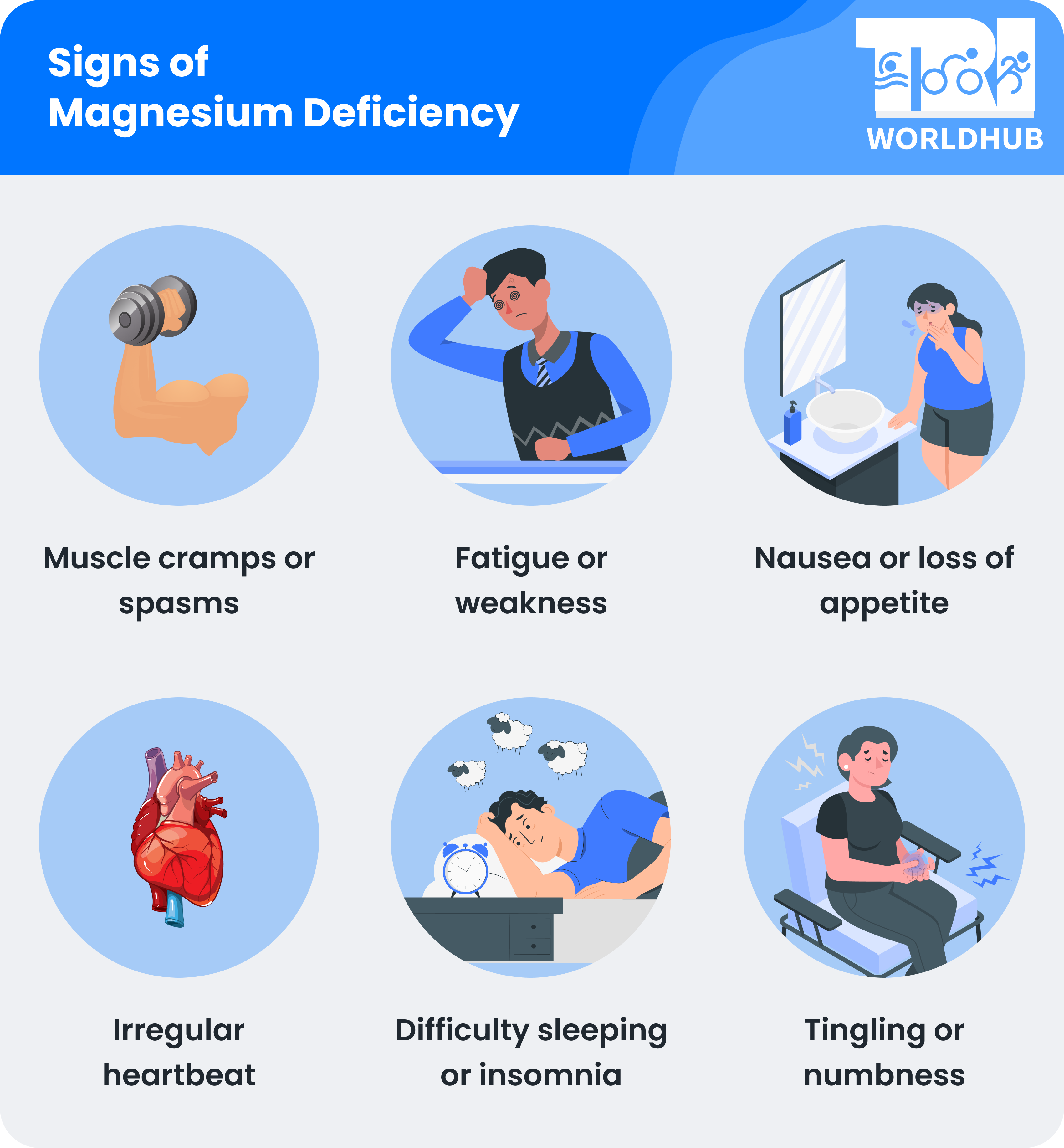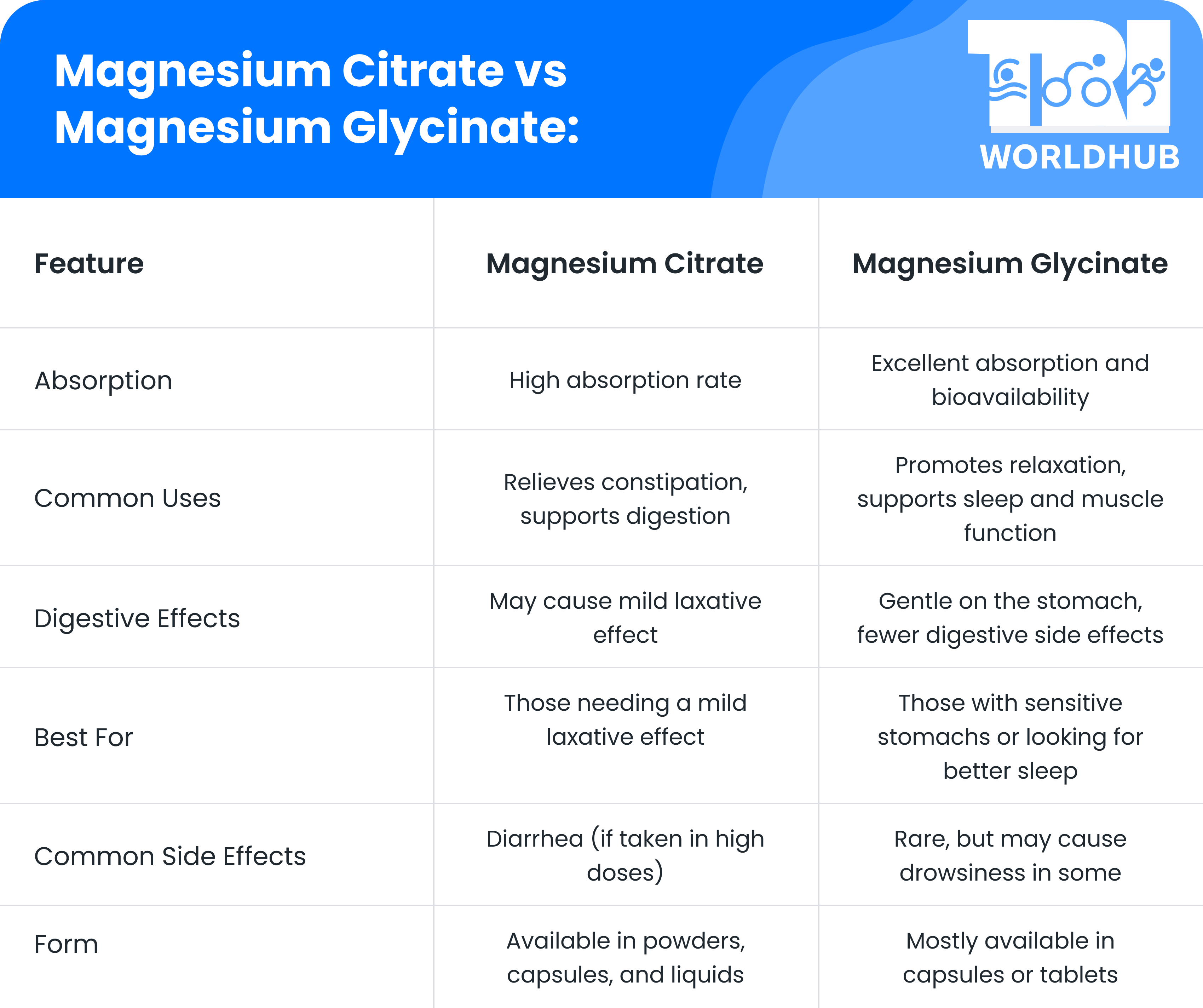Magnesium is an essential mineral and one of the unsung heroes of athletic performance.
It plays a pivotal role in energy production, muscle function, and recovery — three cornerstones for anyone involved in physical activity.
Let’s explore the importance of magnesium for athletes.
What is Magnesium and Why is it Important for Athletes?
Magnesium is a mineral that supports functions like protein synthesis, nerve function, and blood sugar control.
For athletes, its role in energy production is especially vital.
Magnesium helps convert food into energy by activating adenosine triphosphate (ATP), the body’s main energy currency.
Without adequate magnesium levels, energy production can falter, leading to fatigue and decreased performance.
This mineral also supports muscle contraction and relaxation. It helps to prevent cramps and promote efficient recovery after workouts.
Furthermore, magnesium supports bone mineral density — a key factor for injury prevention, especially in endurance athletes like triathletes who put their bodies through rigorous training schedules.

Why Athletes Need More Magnesium?
Athletes naturally need more magnesium than most people.
This is because excessive training leads to greater sweat loss and higher energy use, both of which deplete magnesium levels.
When magnesium levels drop, it can affect endurance, strength, and recovery, making it harder to perform at your best.
While the body stores magnesium in bones and soft tissues, these reserves can run out quickly without enough magnesium from food or supplements.
Since intense workouts push your body to use even more magnesium, it’s important to prioritize getting enough to keep up with these demands.
Food Sources and Supplementation
Magnesium is found in nuts, seeds, whole grains, leafy greens, and legumes.
However, even with a balanced diet, many athletes struggle to meet the recommended daily intake, especially if they’re following restrictive diets or have specific dietary preferences, for instance, you are putting together your marathon nutrition plan.

This is why supplementation often becomes a practical solution.
Magnesium supplements come in various forms, including magnesium citrate and magnesium glycinate, both of which are well-absorbed and effective in restoring levels. Well get back to this point later on.
Understanding Magnesium Deficiency
Magnesium deficiency is a widespread issue that affects athletes and non-athletes alike.
According to the National Health and Nutrition Examination Survey (NHANES), 79% of US adults do not meet the recommended daily allowance (RDA) for magnesium.
Why? Well, there are many reasons for that.
Many people don’t eat enough magnesium-rich foods like leafy greens or nuts. But even for those who do, modern farming practices have made the situation tricky.
Overuse of topsoil and reliance on recycled water have led to mineral-depleted soil, meaning the plants we eat don’t contain as much magnesium as they once did.
On top of that, our lifestyles create an even greater need for magnesium.
Diets high in sugar, for example, use up more magnesium during digestion. Certain medications and fluoride in water can bind magnesium, making it less available to the body.
To complicate things further, habits like drinking coffee or alcohol can increase magnesium loss through urine.
For athletes, this shortfall can have serious implications, as magnesium is critical for energy production, muscle function, and bone health.
Signs and Consequences of Low Magnesium Status
Symptoms of magnesium deficiency don’t always appear immediately, but over time, they can have a significant impact on your athletic performance.
Common signs of low magnesium levels include:
- Fatigue: inadequate magnesium intake leads to chronic tiredness as your body produces less energy.
- Muscle cramps and weakness: magnesium regulates muscle contraction and relaxation, so insufficient levels can lead to painful muscle cramps and decreased strength. Feel free to explore this topic further in our article on how to prevent cramps when running.
- Bone disorders: magnesium deficiency can contribute to bone loss, increasing the risk of fractures and injuries.
Additionally, magnesium deficiency is linked to chronic inflammatory stress conditions.
For endurance athletes, who already experience high oxidative stress from prolonged training, this can lead to longer recovery times and a higher likelihood of injury.

How to Asses Maintain Optimal Magnesium Status
Most of the magnesium in our bodies is stored in our bones (about 50–60%), while the rest is in soft tissues, with less than 1% found in your blood.
This makes it tricky to measure magnesium levels accurately since standard blood tests don’t give the full picture.
Let’s see what tests can help you find out your magnesium status.
Common Magnesium Tests
- Blood Serum TestThis is the test most doctors use. It measures the magnesium in your blood serum, but since this only accounts for a tiny fraction of your body’s magnesium, it’s not always a reliable indicator. Your body works hard to keep serum levels stable, even if you’re actually deficient, which can make this test appear normal when magnesium levels in your cells or bones are low.
- Whole Blood Magnesium TestThis test is more accurate because it looks at magnesium levels in both blood cells and serum. While there isn’t a universal “optimal range” yet, research is ongoing to better understand what levels are ideal for health and performance.
Tests like the magnesium loading test or measuring ionized magnesium and red blood cell magnesium can also provide more insight into your magnesium status.
Daily Magnesium Needs
The recommended daily magnesium intake is:
- 400–420 mg for men
- 310–320 mg for women
Making sure you get enough magnesium — through diet or endurance supplements — can help you maintain optimal levels and keep your body performing at its best.
How to Choose the Right Magnesium Supplement
Finding the right magnesium supplement can feel a bit overwhelming with so many options out there.
But as an athlete, it’s worth taking the time to choose a supplement that works for your specific needs.
The right one can make a big difference in your energy, muscle recovery, and overall performance.
What Are the Best Magnesium Options?
Not all magnesium supplements are created equal.
Here are the top picks for athletes:
Magnesium Citrate is a go-to option for many athletes because it’s super absorbable and effective. It’s great for boosting energy, relaxing muscles, and helping your body recover after tough workouts.
Magnesium Glycinate is a great choice is you are dealing with muscle cramps or stress. Magnesium glycinate is gentle on your stomach and gets absorbed easily, so no worries about discomfort.
Magnesium Chloride is more commonly used for topical applications rather than as a dietary supplement. So, it’s not the best option for replenishing magnesium.
Tips for Picking the Right Magnesium Supplement
Choosing the right supplement doesn’t have to be complicated. Here’s what to keep in mind:
- Look for forms like citrate or glycinate that your body can absorb easily.
- If you’re prone to muscle cramps, stress, or stomach sensitivity, some types might work better for you. Talking to a healthcare provider can help if you’re unsure.
- A supplement with around 200 mg of magnesium is a good place to start. It covers about half of your daily needs, leaving room for the magnesium you get from food.
- Look for supplements certified by the National Sanitation Foundation (NSF). This ensures they’re safe and free of any sketchy additives.
A good magnesium supplement must give your body the support it needs to perform at its best.
You want to choose a high-quality option that fits your lifestyle to cover your nutritional bases and set yourself up for better recovery, fewer cramps, and more energy on race day.
Benefits of Magnesium Supplementation for Athletes
For athletes, magnesium isn’t just another nutrient — it’s a performance powerhouse.
Whether you’re creating your Ironman training plan or working on building endurance, magnesium can make a noticeable difference in how your body performs and recovers.
1. Improved Energy Production
Magnesium is a key player in converting the food you eat into usable energy.
It activates enzymes involved in ATP (adenosine triphosphate) production, your body’s primary energy source. This means better stamina and sustained performance during long training sessions.
2. Enhanced Muscle Function and Recovery
Muscle cramps and soreness are common complaints among athletes, especially after intense workouts.
Magnesium helps relax muscles and prevents spasms as it regulates calcium absorption and potassium levels in your cells. This not only aids recovery but also reduces the risk of injury.
3. Reduced Inflammation
Intense exercise can lead to inflammation, which, if left unchecked, slows recovery and impacts performance.
Magnesium has anti-inflammatory properties that can help mitigate this, keeping your body in peak condition.
4. Better Sleep and Stress Management
Athletes often underestimate the role of rest in their training.
Magnesium promotes relaxation by regulating neurotransmitters like GABA, which can improve sleep quality.
It also helps manage cortisol levels, reducing stress and enabling better mental focus during training and competition.
5. Stronger Bones and Joints
As an athlete, strong bones and joints are crucial for supporting your training load.
Magnesium works alongside calcium and vitamin D to strengthen bones, reducing the risk of fractures or other bone-related injuries.
6. Enhanced Heart Health
Endurance athletes, in particular, place extra strain on their cardiovascular systems.
Magnesium helps regulate heart rhythm and blood pressure, ensuring your heart can keep up with the demands of intense physical activity.
7. Optimized Electrolyte Balance
Sweat isn’t just water — it’s packed with electrolytes, including magnesium.
Supplementing can help replenish what you lose during exercise, preventing dehydration, fatigue, and muscle cramps.

Wrapping Up
Keeping your magnesium levels in check is simpler than it might seem.
First, you want to listen to your body. If you think you’re low on magnesium, talk to your doctor about testing and figure out what’s best for you.
When choosing a supplement, go for one that suits your needs — forms like magnesium citrate or glycinate are easy for your body to absorb.
A daily dose of around 200 mg is a solid starting point, especially when paired with a magnesium-rich diet.
Don’t forget that food plays a big role too!
Incorporate leafy greens, nuts, seeds, and other magnesium-packed options into your meals.
Combine this with regular exercise to build a foundation for stronger performance and better recovery.
As life or training changes, so might your magnesium needs.
Stay mindful, check in with your body, and adjust as needed.
With these simple steps, you’ll help your body perform at its peak and feel great doing it.
Your pre-race breakfast can determine your success. Learn what to eat the morning of a marathon to fuel your journey to the finish line.






